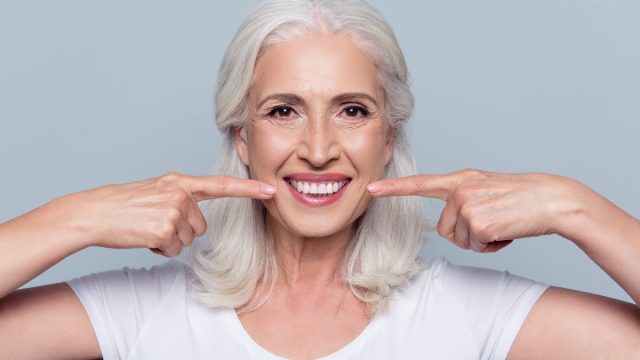
Most of us are (unfortunately!) well aware of the gray hair and wrinkles that start making an appearance as we get older, but no one really talks about what aging does to teeth. If you've noticed your pearly whites looking a little less pearly over the years, all that coffee you drink isn't the only culprit: According to the Cleveland Clinic, the enamel tends to wear away over the years, revealing the naturally-yellow color of the dentin inside the tooth.
A little yellowness isn't the end of the world, though: There are plenty of ways to ensure your smile always looks fresh. Read on for 20 ways to keep your teeth white after age 40.
READ THIS NEXT: What Happens If You Don't Floss Your Teeth Every Night, According to Dentists.
1
Brush for at least two minutes at least twice a day
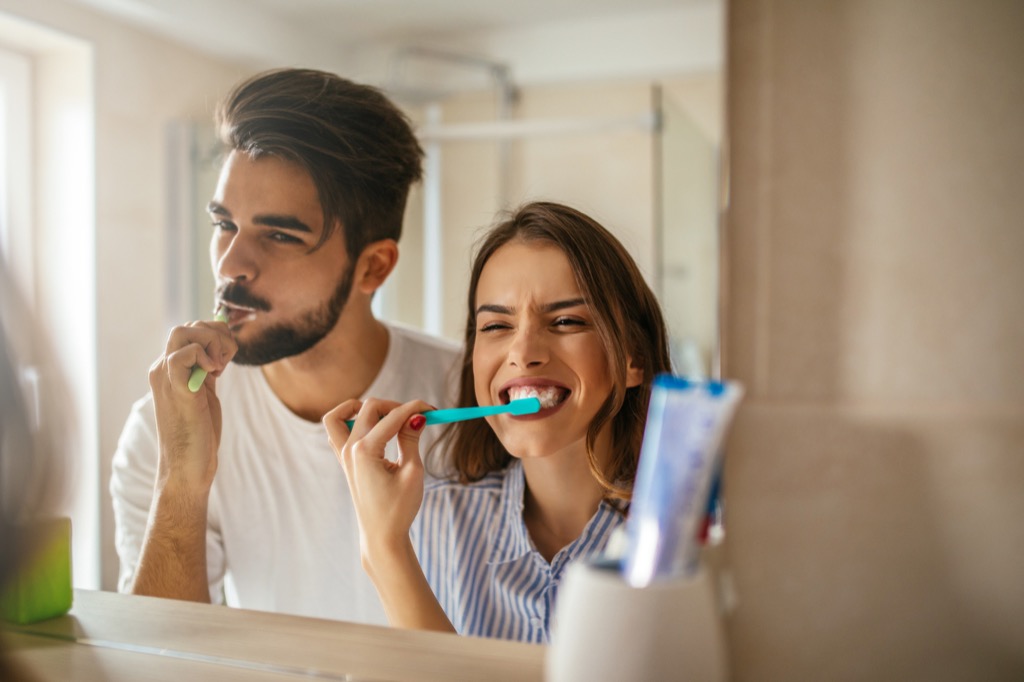
And no—not just a quick scrub. To actually prevent stains and yellowness, the American Dental Association recommends brushing for at least two minutes, hitting all the areas: the outer surfaces, inner surfaces, and chewing surfaces. Then, don't forget to clean the inside of your front teeth using up-and-down strokes, too. Voilà! Clean, whiter teeth.
2
Try activated charcoal
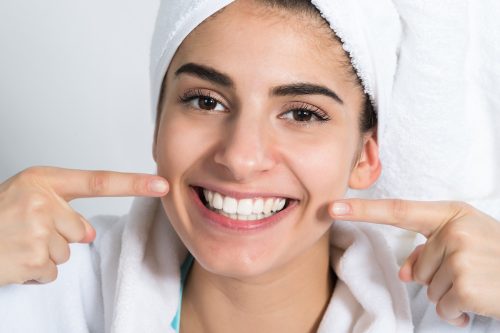
Although activated charcoal hasn't been scientifically proven to help whiten teeth, the wellness world has been abuzz with talk of its supposed benefits for quite a while now. What is it? "Activated charcoal is a fine-grained black powder made from a variety of natural substances, such as coconut shells, olive pits, slowly burned wood, and peat," Healthline experts write. Many different activated charcoal products are available for your teeth, if you're interested in trying it.
3
Watch out for tea
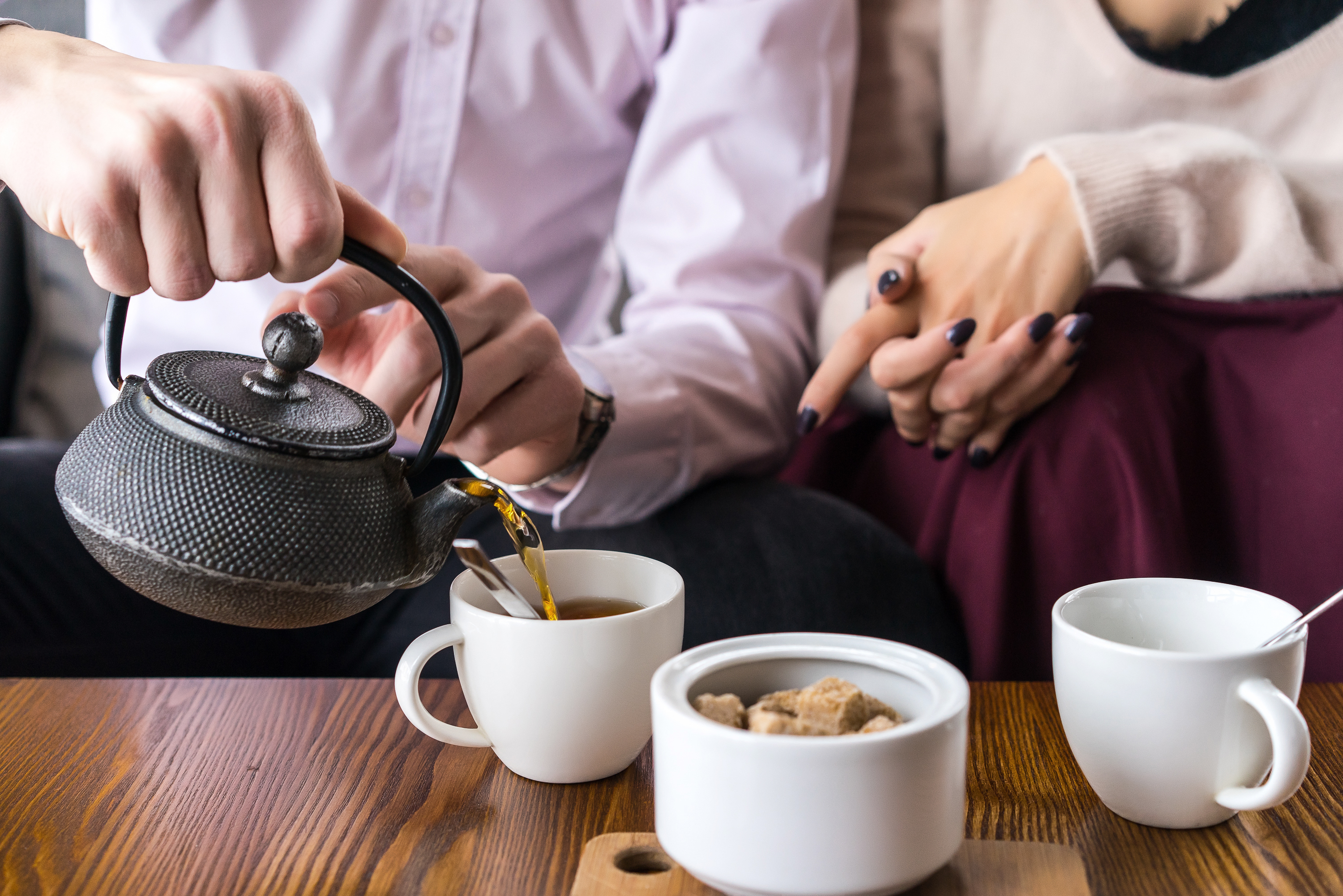
Tea is great for your body, but not so much for keeping your teeth white. While Harvard Medical School says the antioxidants in each cup can help decrease the risk of everything from diabetes to cardiovascular disease, it's also known to stain teeth. Brush your teeth before drinking, then swish water afterward, just to be safe.
4
Try oil-pulling
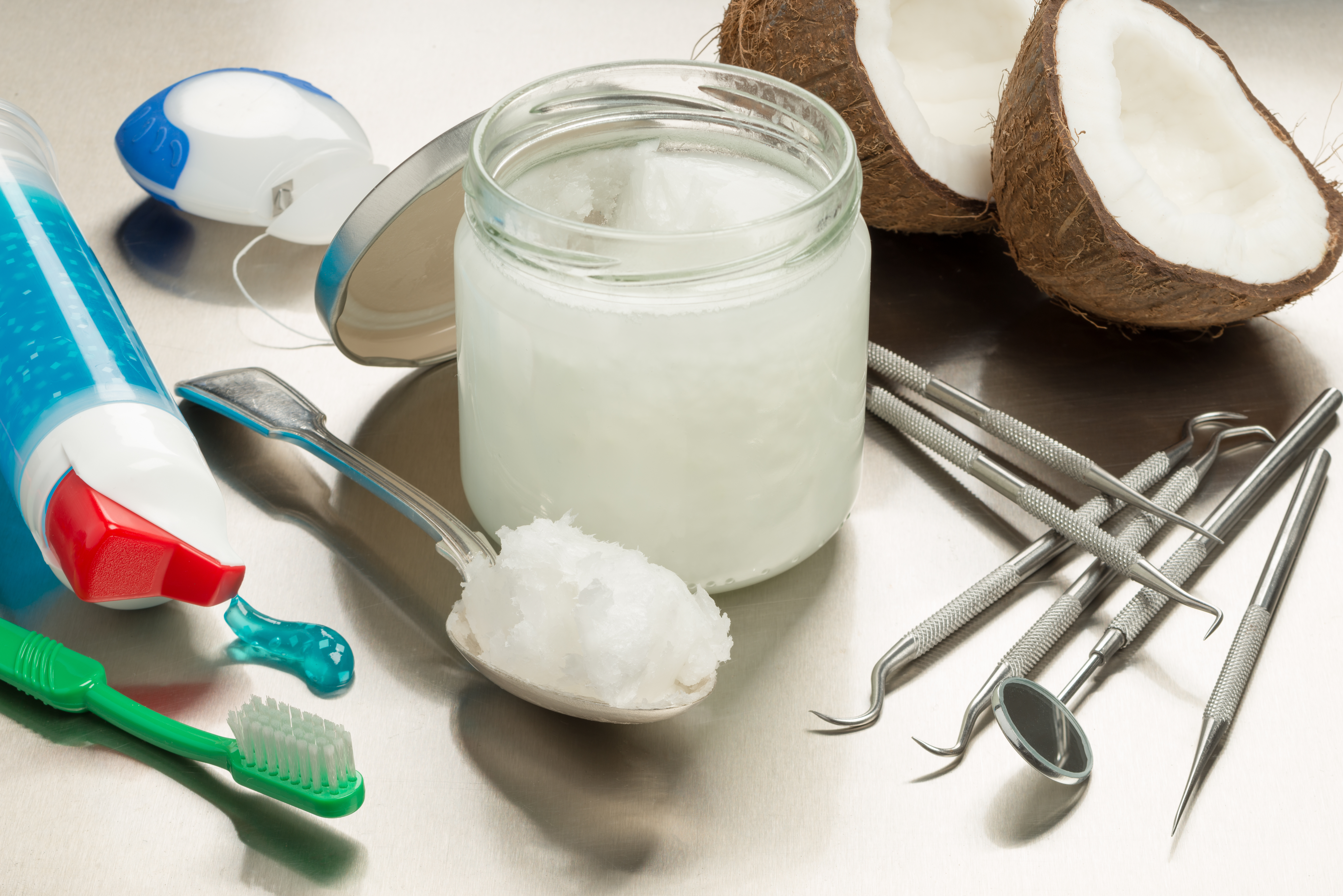
The Ayurvedic practice of oil-pulling has been said to have many health benefits—particularly oral hygiene—and it only requires swishing a teaspoon of oil in your mouth for 20 or so minutes, then spitting it out, says the Cleveland Clinic. Try the method to not only help prevent bad breath, cracked lips, and tooth decay, but also to keep your teeth white: A countless number of people swear by the method.
5
Eat fruits and veggies
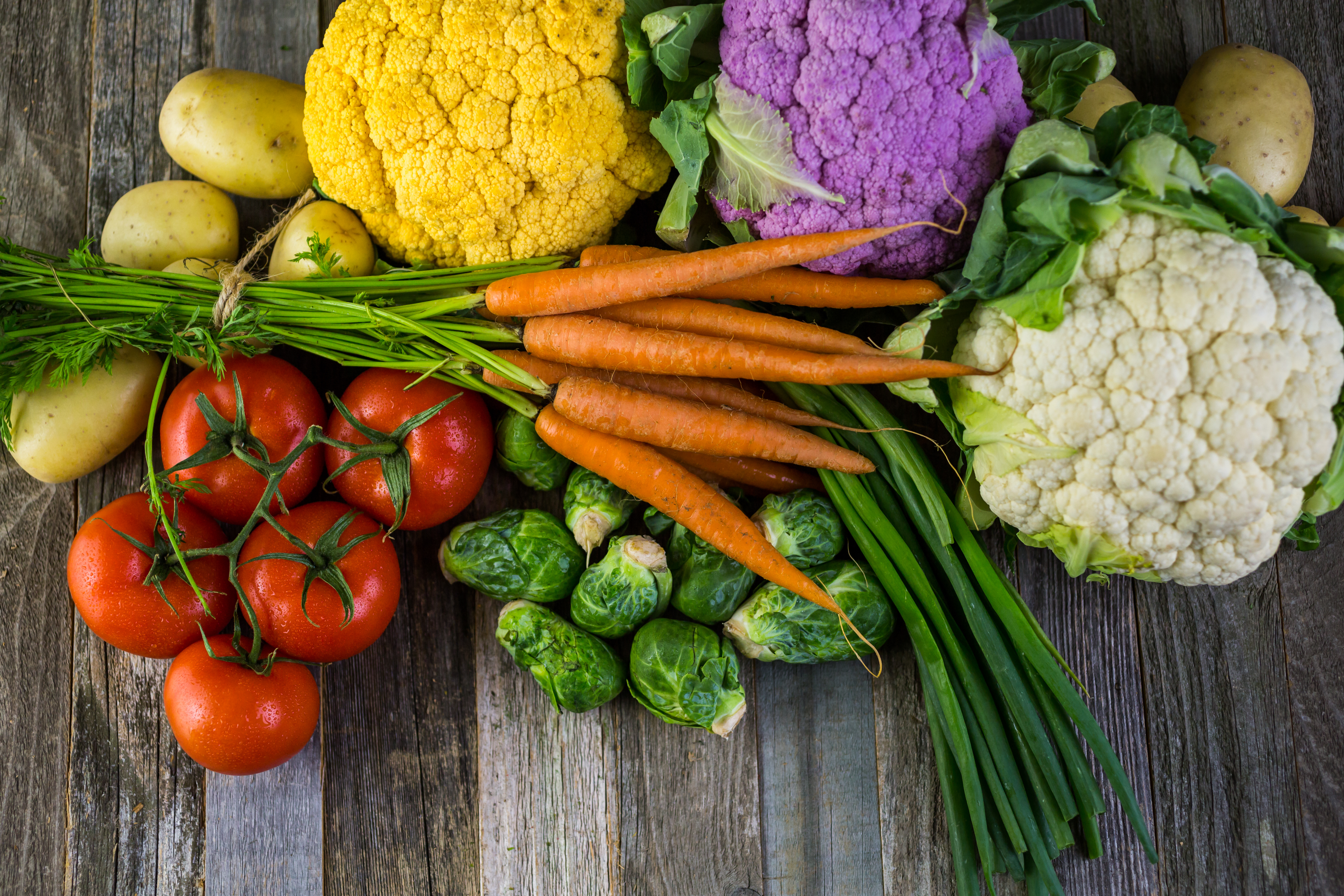
As if you needed another reason to add more fruit and veggies into your diet, they also help keep your teeth white by naturally brushing and cleansing as you chew, says Kanawha City Pediatric Dentistry . Try carrots, apples, broccoli, celery, and any other crunchy veggie you like to reap the benefits.
For more health news sent directly to your inbox, sign up for our daily newsletter.
6
Use whitening toothpaste
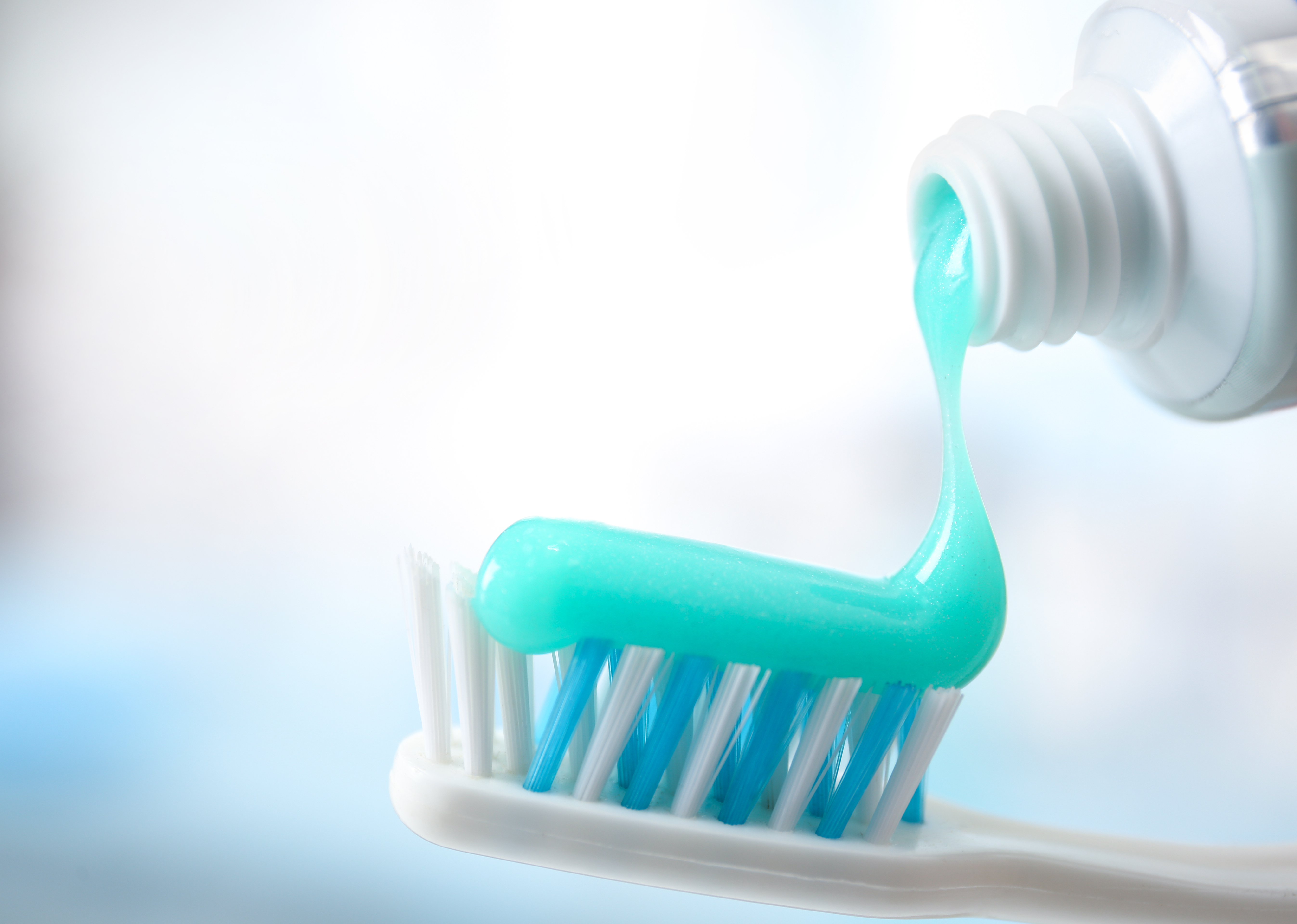
You're brushing your teeth anyway, so you might as well make sure you're brightening your smile in the process. According to the ADA, whitening toothpastes use polishing or chemical agents to remove surface stains, and there are plenty on their safe-list.
7
Check your water levels
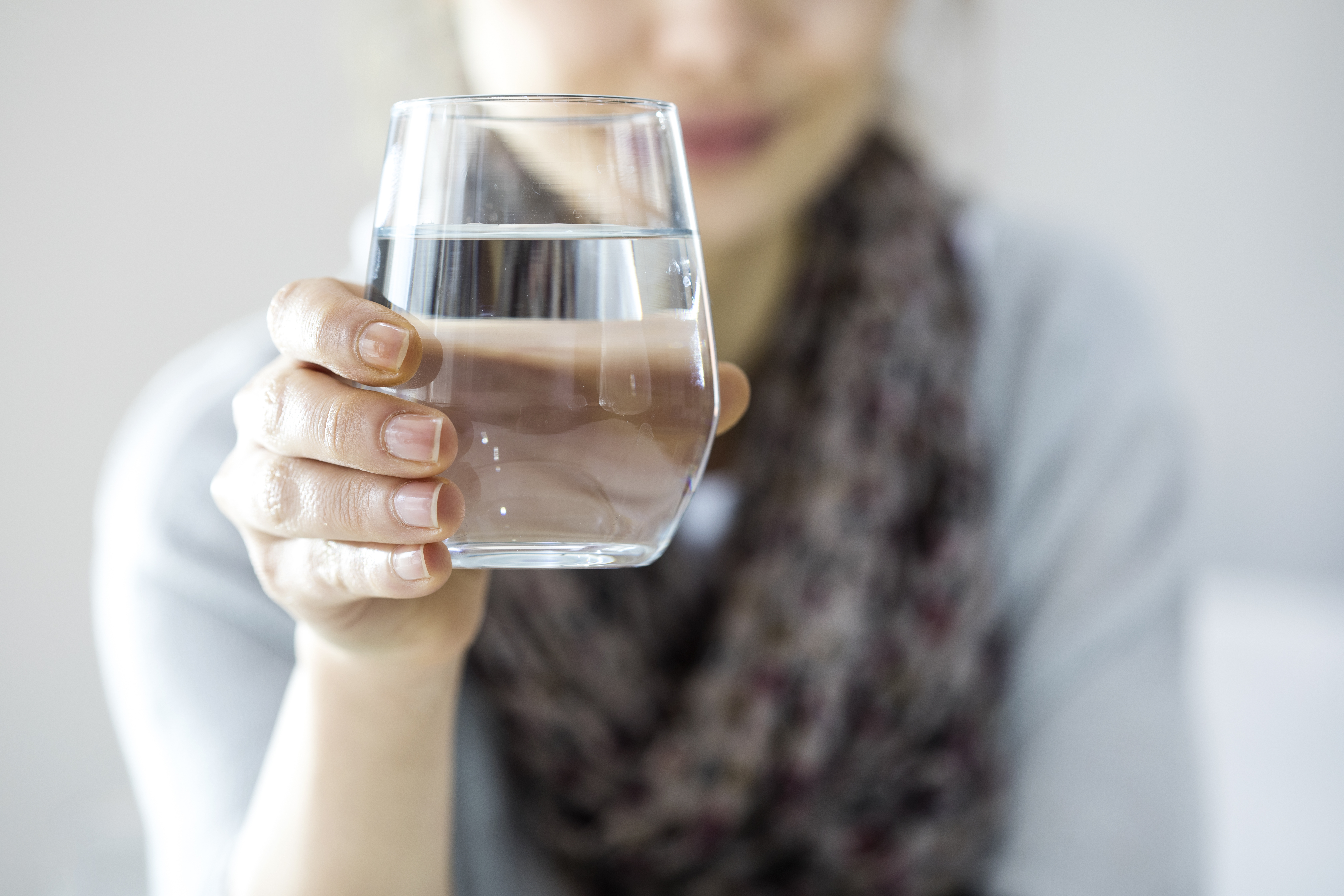
One thing no one ever thinks about when it comes to keeping their teeth white is their water quality, but it makes a big difference. According to the Cleveland Clinic, excessive fluoride in your tap water could be behind teeth discoloration or yellowing. If you're curious, you can check the levels in your area by using the Center for Disease Control's interactive map.
8
Be wary of lemon water

…and all acidic, citrusy foods, for that matter. Obviously goodies like lemon and oranges are great sources of vitamins, so don't avoid them—just drink (and eat!) smarter to make sure the acidity doesn't lead to the erosion of your tooth enamel, making them look more yellow.
According to the Charles Town Dental Center, the best way to get your healthy vitamin C fix without the damage is to brush your teeth before eating or drinking acidic foods, only use juice from fresh lemons in your water, use a straw to protect your teeth, and rinse your mouth with plain water afterward.
9
Don't smoke
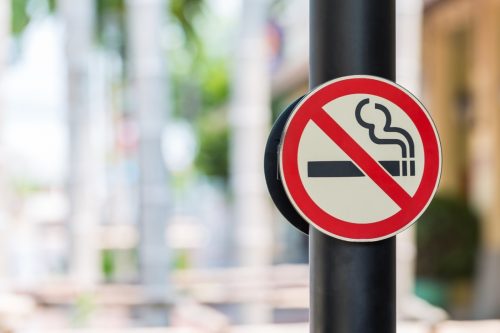
There are plenty of reasons not to smoke—hello, lung cancer!—but stained teeth is one of them. According to the Oral Health Foundation, the nicotine and tar in tobacco can make your teeth turn yellow in a very short period of time, so even an occasional smoke isn't worth it when it comes to your smile.
10
Use an electric toothbrush
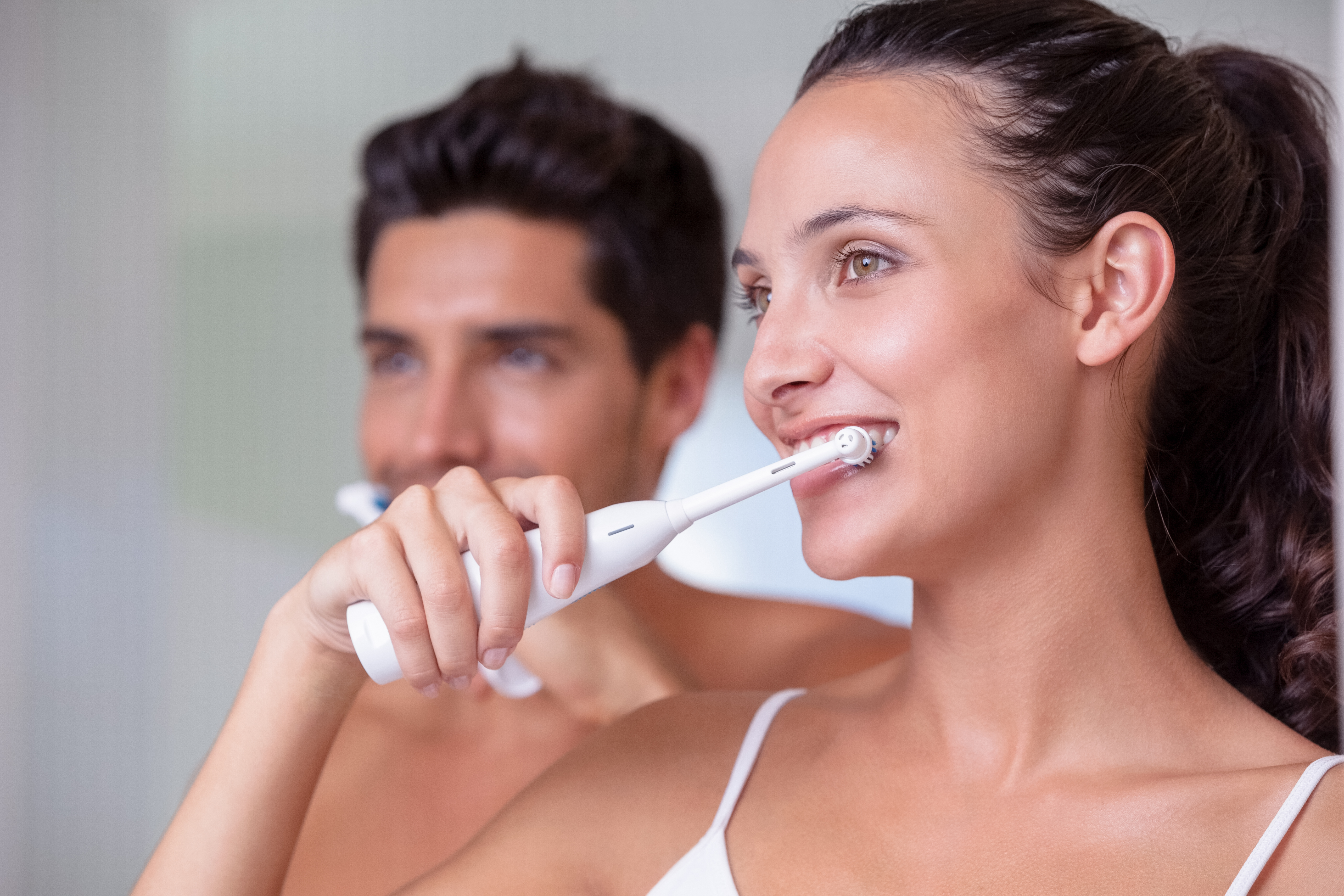
While brushing your teeth with a typical soft-bristled brush is a great way to keep your teeth pearly white, an electric toothbrush is even better. A 2004 study compared the two types and found powered brushes had a bit of a benefit: They reduced plaque and gingivitis better than the manual option.
11
Drink less wine—red and white

While wine offers plenty of impressive benefits, it's not so great for your teeth. The red varieties are known for their ability to stain pretty, white smiles, but they're not the only culprits: A 2009 study found white wine can also stain the teeth, which no one really thinks about. (It is super light, after all!) When you want to have a glass, just brush and floss your teeth beforehand, then rinse with water afterward.
12
Don't sip your coffee

If you're someone who likes to sip coffee throughout the day, it's time to down the drink all at once. According to Clearwater Dental Associates, drinking your favorite brew consistently throughout the day will stain your teeth like crazy. Instead, drink it all in one sitting to reduce the effects, and eat something with your coffee to produce more saliva, which protects your teeth.
13
Do an in-office whitening
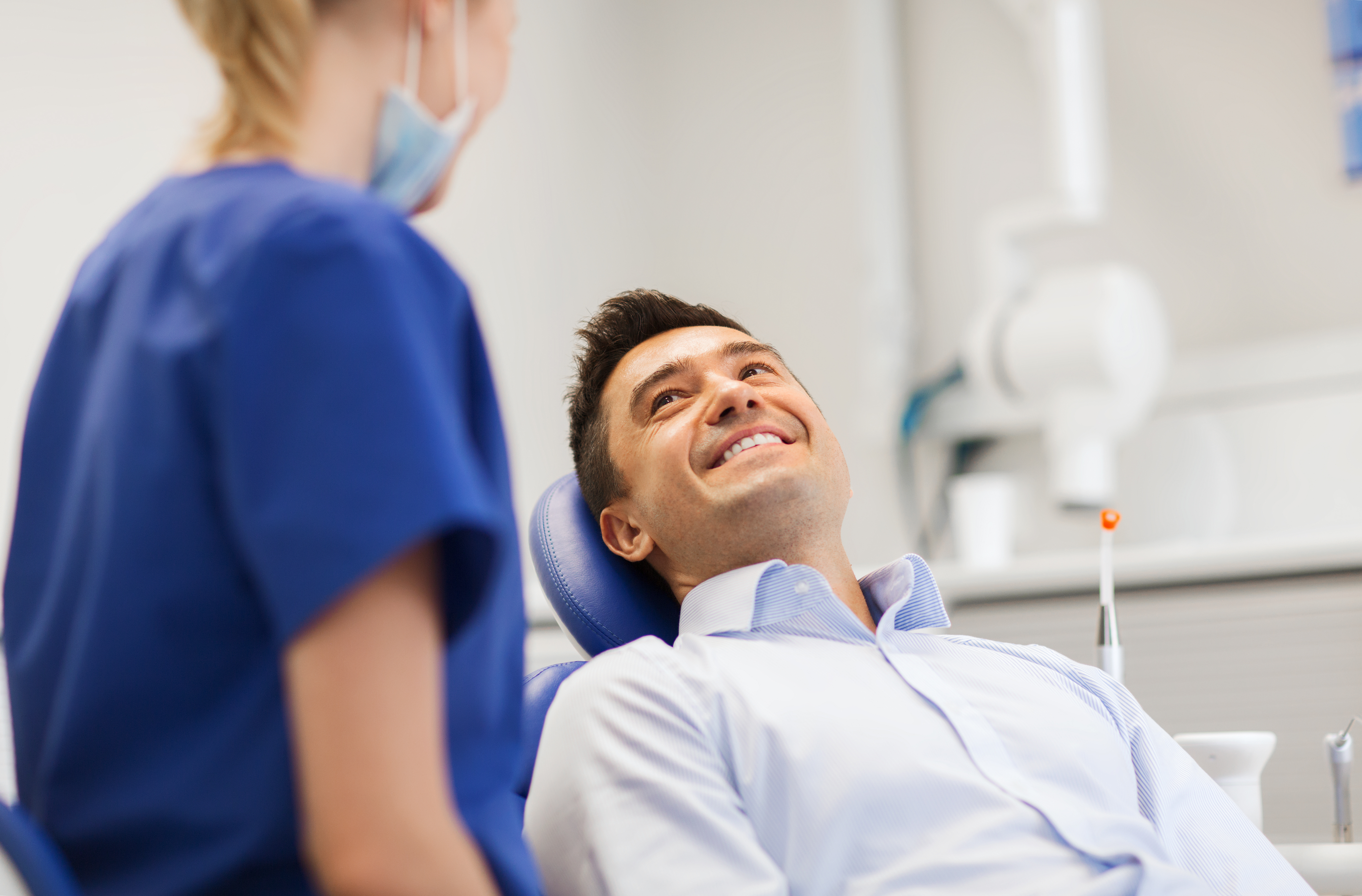
One of the easiest ways to whiten your teeth is leaving the job to the professionals. It's pricier than buying teeth-whitening products to use at home, but it works better—and faster. The Cleveland Clinic says in-office whitening systems tend to have much better results since they're more powerful. Plus, it usually only takes one treatment to see results.
14
Use baking soda
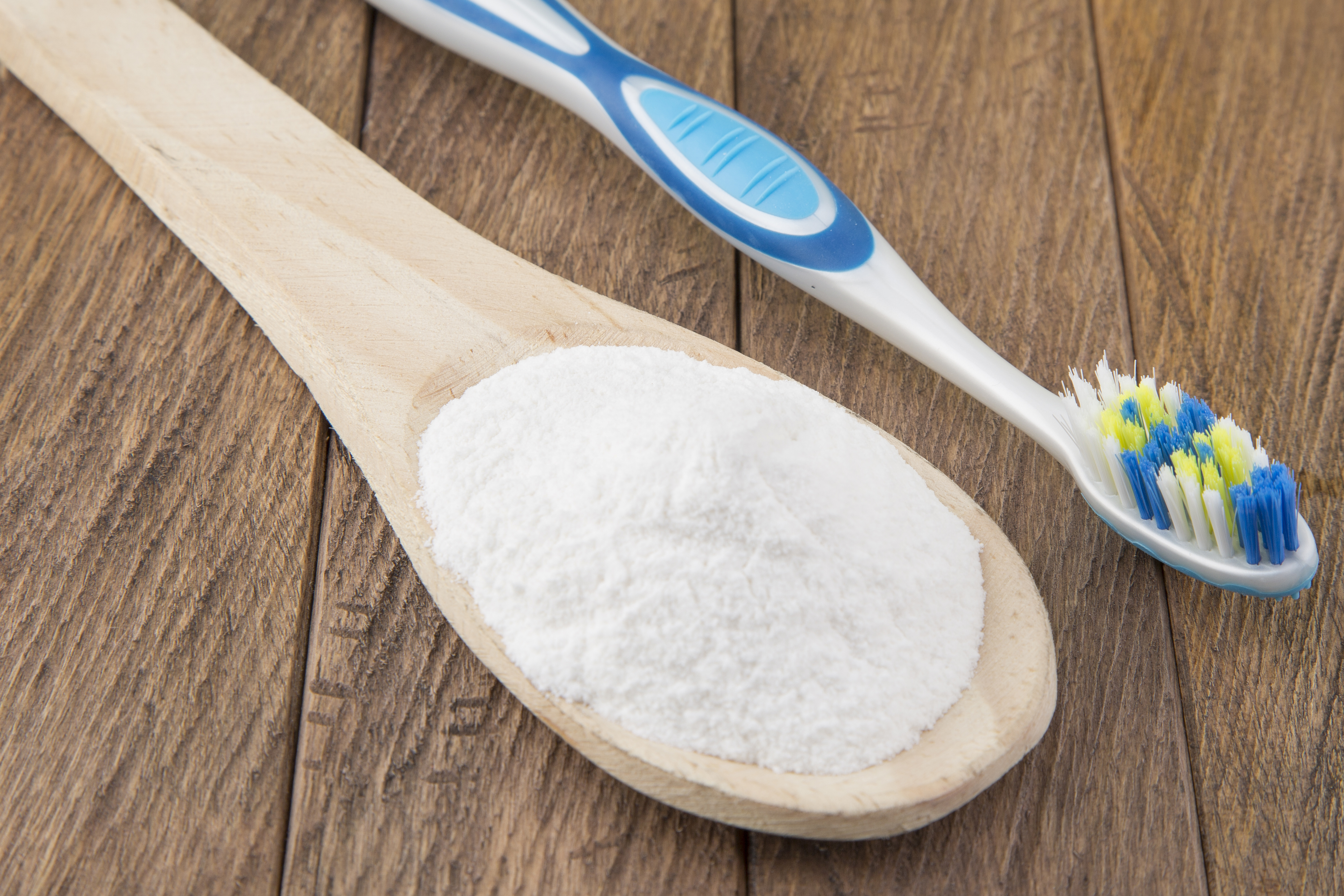
If you've heard rumors that baking soda can help brighten your smile, those rumors are right: According to Hawaii Family Dental, the mild abrasiveness in the white powder can help remove minor stains for a whiter smile. Unfortunately, that's not the same case with stains that are more severe or have been around for a while—and that's where an in-office whitening session comes in.
15
Watch what you eat

It's not just beverages that cling to your teeth and can cause staining. According to the Dallas County Dental Society, lots of other foods you eat on the daily can also lead to yellow teeth. Tomato products (like pasta sauces and ketchup) and dark berries (like blueberries) are popular culprits, but you can swish with water after eating to remove the residue that can lead to stains.
16
Use mouthwash
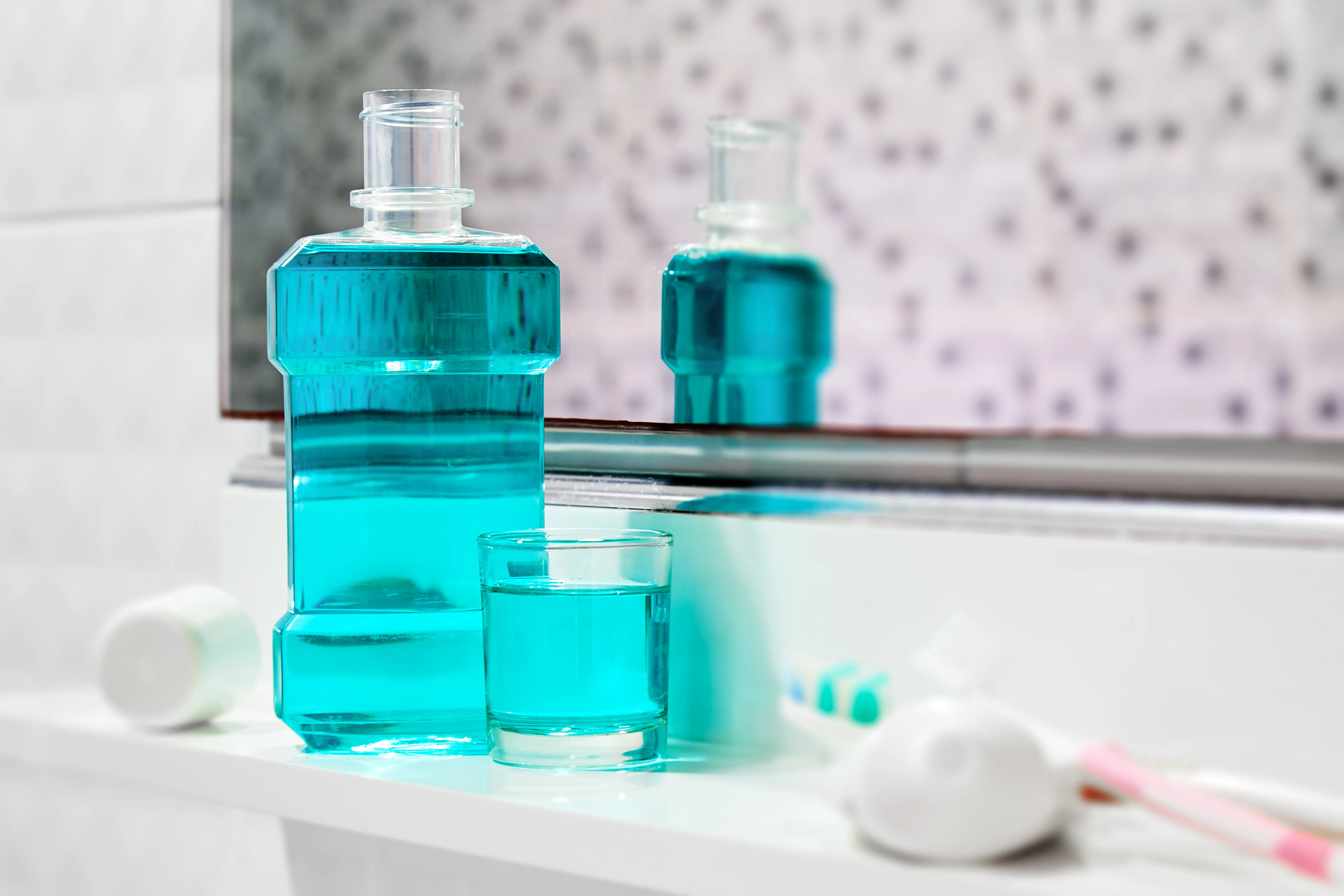
There's something so refreshing about mouthwash. Anytime you need a pick-me-up during the day, it's right there to give you fresh breath and a little boost of energy. And if you grab the kind with peroxide, it can also help whiten your smile in the process, says the ADA.
17
Floss regularly
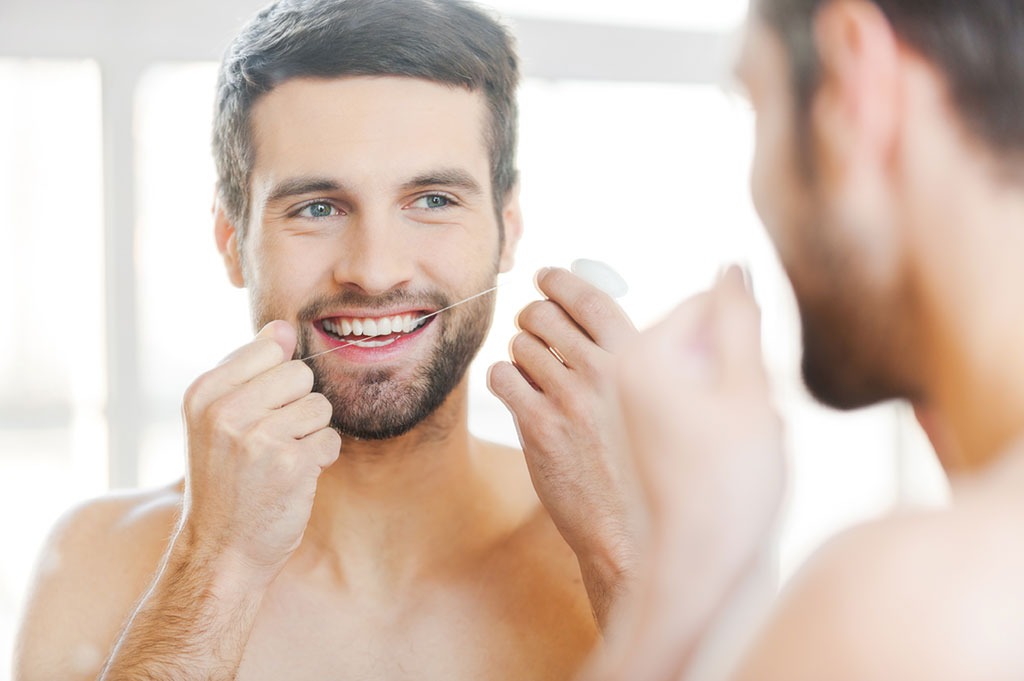
How many times have you tried flossing right before you go to the dentist to fool them into thinking you've been on your best behavior since your last appointment? Maybe—just maybe!—it'll work, but it's not doing you any good when it comes to keeping your teeth white. When you don't floss, bacteria can build up on your teeth and hurt the enamel, giving you a yellowish hue, says FLOSS Dental. Be sure to floss at least once a day before you brush your teeth, which a 2015 study found works significantly better when it comes to plaque control.
18
Check your medications
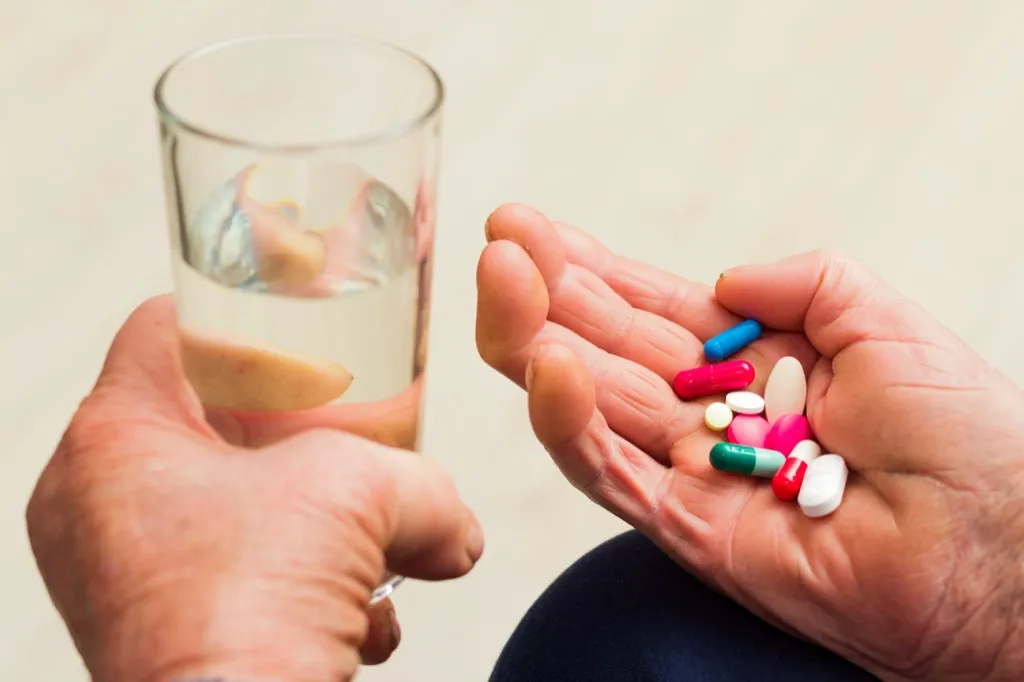
If you take a medication often, check to see if it could cause yellowing. According to the Cleveland Clinic, antihistamines—like Benadryl—as well as antipsychotic drugs and antihypertensive medications can be responsible for discoloring your teeth.
19
Try whitening strips
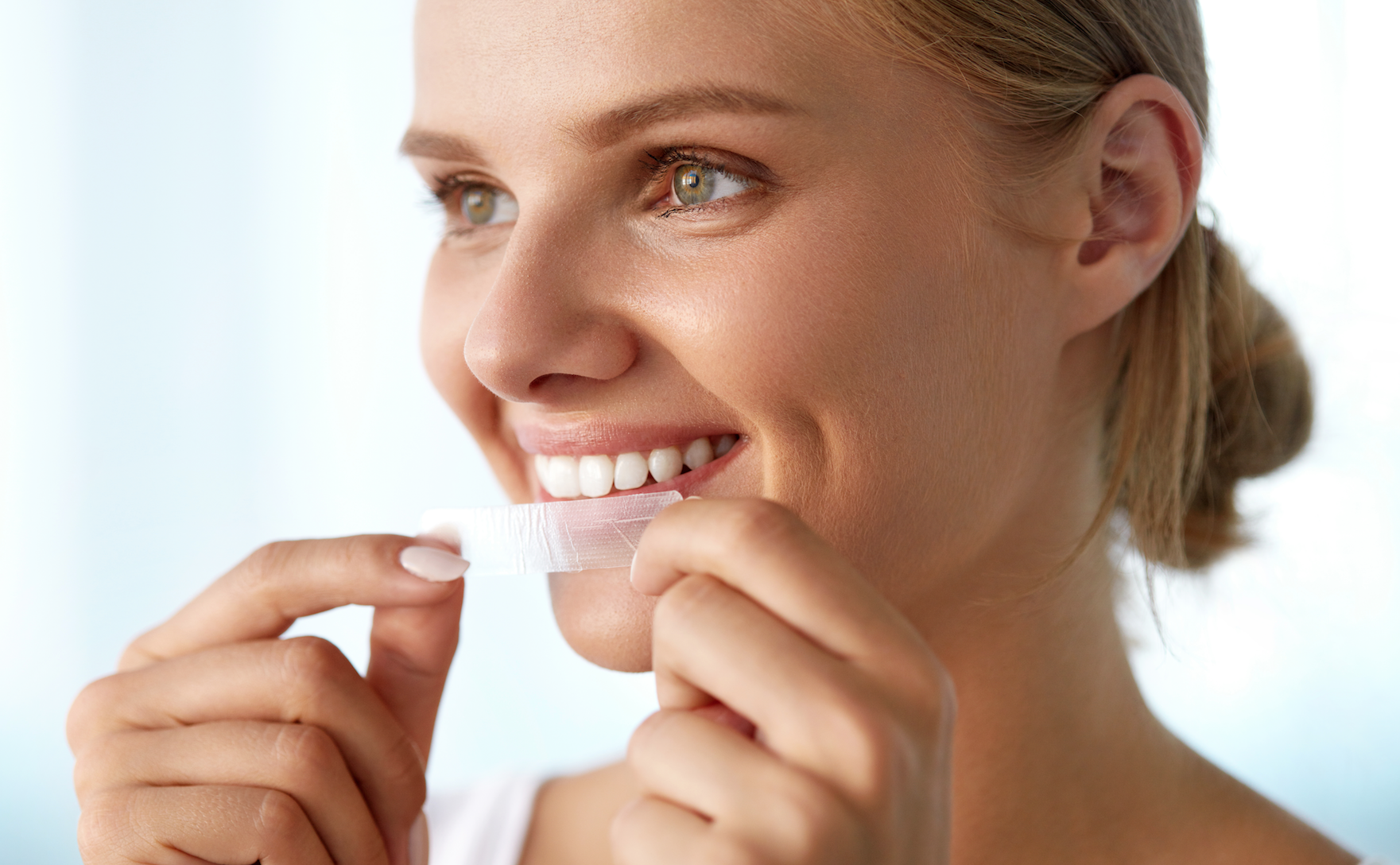
One of the most popular ways to keep your teeth white at any age is to stock up on whitening strips. By applying them to your teeth and waiting the recommended amount of time, it won't take long to start seeing noticeable results. Look for products with ADA's Seal of Acceptance, and you could see a change in your teeth in as little as a few days.
20
Use a straw
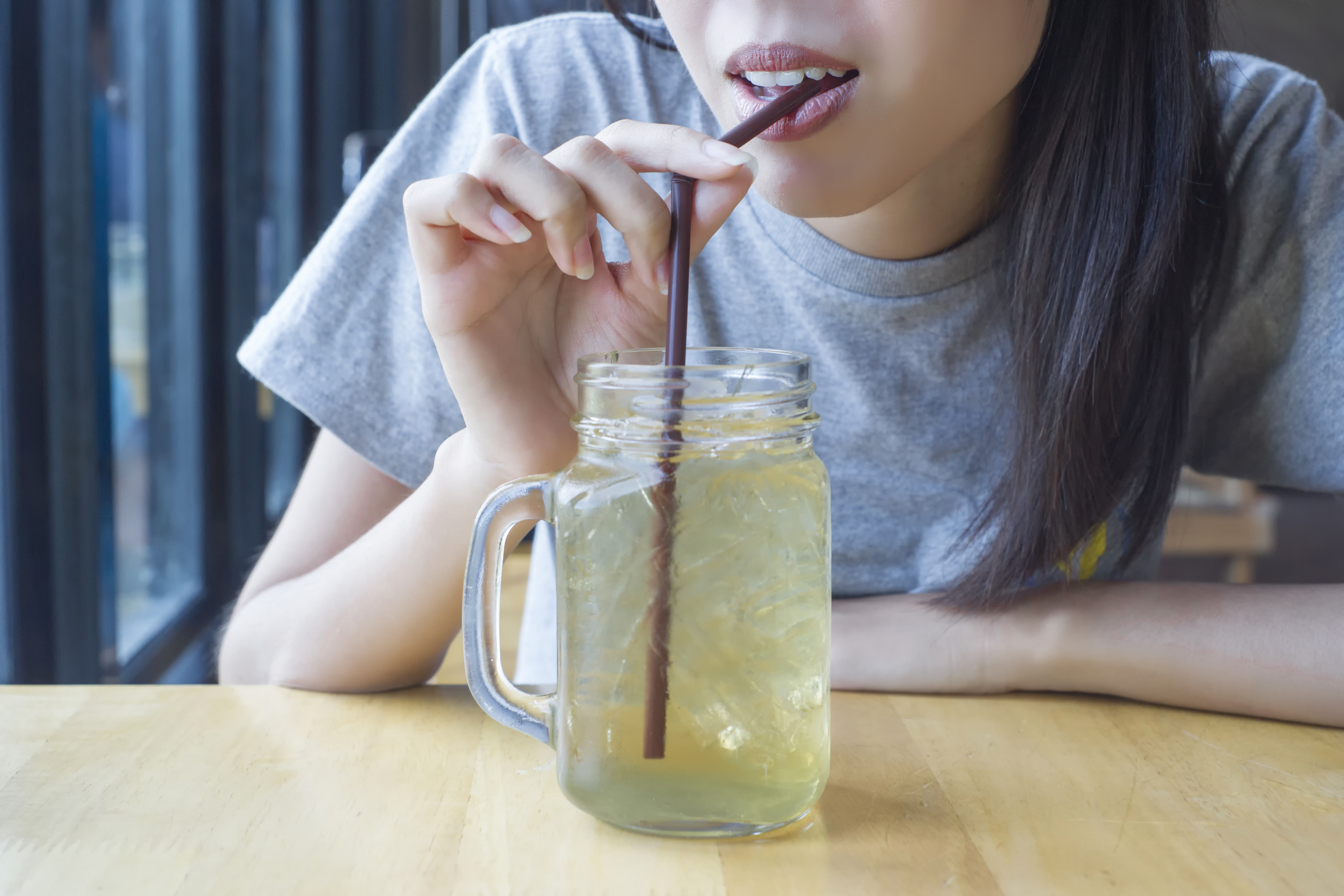
The next time you're sipping something that's known to cause teeth staining—whether it's wine, coffee, or tea—use a straw to help limit the contact the beverage has with your teeth, says the Dallas County Dental Association. Sure, it probably feels—and possibly looks!—a little funny with a glass of wine, but you'll be happy you went the extra mile when you have a sparkly smile down the road.
Best Life offers the most up-to-date information from top experts, new research, and health agencies, but our content is not meant to be a substitute for professional guidance. If you have health questions or concerns, always consult your healthcare provider directly.





















